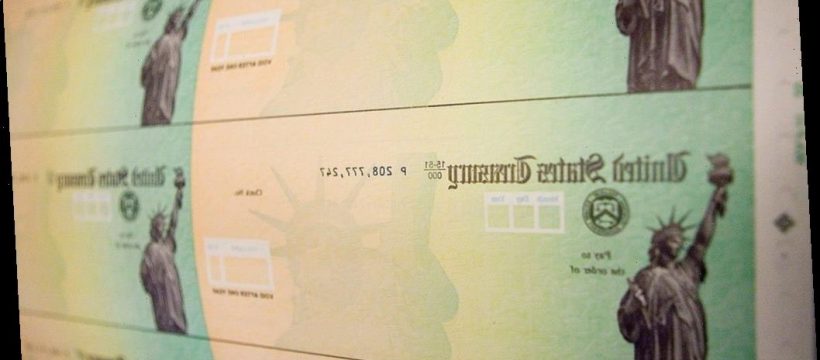A SECOND round of stimulus checks under a new coronavirus relief legislation is expected to be voted on later this week.
The anticipated checks being pushed by House Democrats could be different from the first round of payments.
House Speaker Nancy Pelosi unveiled a coronavirus aid package with stimulus checks of up to $6,000 per house and $200billion in "hazard pay."
Pelosi said Tuesday that the package would comprise more than $3trillion in aid with nearly $1trillion set aside for states, cities and local governments, aid to essential workers, and a new round of cash payments to individuals.
The package could be voted on as soon as Friday, but Senate Majority Leader Mitch McConnell has said there is no “urgency” to act on new legislation.
The so-called Heroes Act would provide nearly $1 trillion for states, cities and tribal governments to avert layoffs and additional $200 billion in “hazard pay” for essential workers, according a summary.
It will offer a fresh round of direct payments of $1,200 to individuals, increased to up to $6,000 per household, and launches a $175 billion housing assistance fund to help pay rents and mortgages.
According to Kiplinger, here's how the second round of checks could be different from the first round.
Families could get more money
The Heroes Act calls for the same payment amounts for eligible Americans – $1,200 or $2,400 – but families would get an additional $1,200 for each dependent.
A married could with three kids could get up to $6,000 – because three would be the maximum number of dependents.
People with higher incomes would get a minimal or no payment
Anyone with a modified adjusted gross income of more than $75,000 will see decreased payments.
The difference with the second round payments is that income would be measured through a modified AGI.
Second-round payments would count against a 2020 tax credit
If the second payment is less than a person's 2020 tax credit, the difference would be returned when the 2020 return is filed.
However, if the payment is more than a person's 2020 credit, they wouldn't need to pay back the difference.
The IRS could get information from various sources
The Internal Revenue Service would obtain personal information from 2019 tax return's to determine filing statuses.
The modified adjusted gross income and details on dependents would also be looked up.
Some people would not get a second-round payment
Under the Heroes Act, a person claimed as a dependent on someone else's tax return wouldn't be eligible for a second-round check.
Nonresident aliens, people who are not US citizens and don't have a green card, do not qualify for the first or second-round stimulus checks.
A social security number would not be needed to get the payment
Unlike the first payments, social security numbers would not be needed for the second round of checks.
Those eligible would need a Taxpayer Identification Number (TIN) to get a second-round payment.
Child support would not be taken out of the checks
Under the Heroes Act, the IRS cannot use second round payments to pay money owed to child support.
The second round checks would not be used to pay back taxes or other debts.
Payments couldn't be garnished by creditors or debt collectors
According to the Heroes Act, the next set of stimulus checks would be protected and not be affected by garnishment.
President Trump's name would not be included on the second-round checks
The presidents name, along with any other elected US official, will not be allowed on to appear on second-round checks.
First-round stimulus checks could be modified
People would be able to get the first-round payment if they have no Social Security number – but instead a Taxpayer Identification Number.
The IRS would have to send checks for the payment difference if the Heroes Act is approved.
Source: Read Full Article





